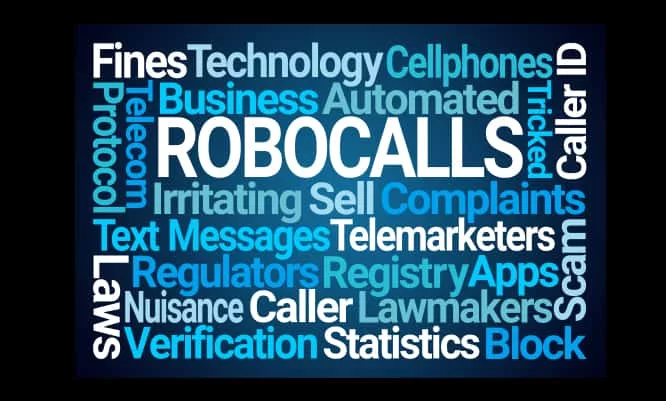As advancing technologies allow people with less than honorable intentions to make it look as though your wife or boss is calling you, when in fact it’s either a scam artist or a telemarketer, the issue continues to ratchet up the noise level considerably in our lives. Now, Michigan Attorney General Dana Nessel is joining the Federal Trade Commission and 25 other American states in a national crackdown on illegal robocalls.
Nessel says, “Nothing is more annoying, more intrusive, uninvited and unwelcome than robocalls – and yet, Michigan residents fall victim to an avalanche of illegal calls each day.” So, the Attorney General says Michigan is joining the Federal Trade Commission (FTC) and other states in announcing a sweeping crackdown on illegal robocalls, including 94 actions targeting operations around the U.S. responsible for more than a billion robocalls nationwide.
Industry experts estimate that 1.2 billion robocalls were made to Michigan residents last year alone, in 2018. Experts are estimating residents have already received nearly 700 million robocalls in 2019.
The joint crackdown, dubbed “Operation Call it Quits,” is part of the FTC’s ongoing effort to help stem the tide of universally loathed pre-recorded telemarketing calls that range from pitching products and services to credit card interest reduction services, money-making opportunities and medical alert systems. The initiative also includes new information to help educate residents about illegal robocalls.
As part of the operation, Michigan’s actions include forcing a settlement with Ardent Natural Gas, LLC in March 2019, which resolved alleged violations of the Home Solicitation Sales Act for using robocalls to illegally solicit Michigan consumers. As part of the effort, the Michigan Attorney General’s Office has already hosted 125 consumer education seminars focusing on robocalls and e-scams through May 30, 2019.
The operation also includes four new cases and three new settlements from the FTC alone.
AG Nessel says, “It’s time to put a stop to this public nuisance,” and adds, “This is only the beginning of several efforts by the Michigan Attorney General’s Office to combat this epidemic perpetuated by negligent companies who see nothing more than dollar signs at the other end of the phone line. Our state’s residents and the American people have had enough. I’m happy to join forces with the FTC and several other states to combat the exponential surge in robocalls around the country and bring broader awareness to the ways consumers can fight back.”
Including the Michigan Attorney General’s Office, 26 federal, state, and local agencies have brought 94 enforcement actions as part of the initiative. Partners announcing enforcement actions this week include the Attorneys General Offices for Alabama, Arizona, Colorado, Florida, Illinois, Indiana, Missouri, North Carolina, North Dakota, Ohio, Oregon, Pennsylvania, Texas, and Virginia; the Consumer Protection Divisions of the District Attorneys for the Counties of Los Angeles, San Diego, Riverside, and Santa Clara, California; the Florida Department of Agriculture and Consumer Services; and the Los Angeles City Attorney. In addition, the United States Attorneys’ Offices for the Northern District of Georgia, Middle District of Florida, and Southern District of Texas, with support from the Treasury Inspector General for Tax Administration, have contributed five criminal actions.
The FTC’s one-stop shop for consumers looking for information on what to do about robocalls and other unwanted calls can be found at ftc.gov/calls. In addition to updated articles and infographics, consumers will find three new short videos about stopping unwanted calls. Consumers looking for additional information on ways to limit illegal robocalls can click the link below:
https://www.consumer.ftc.gov/features/how-stop-unwanted-calls






